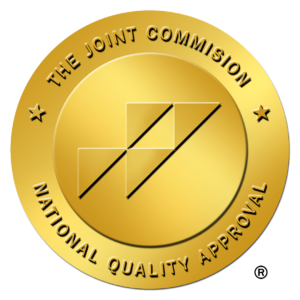Candidate FAQs
Travel nurses will sign a contract to fill a temporary position. Assignments can last several days, weeks, or months — or longer. When contracts end, travel nurses either extend their stay at the same location or move on to a new destination and opportunity. The length of their contracts can vary, although most placements are between eight and 26 weeks. Some travel nurses find a temporary assignment they enjoy and work to secure a full-time position, but many continue to travel and keep flexible working hours.
Students and professionals interested in this career path can benefit from exploring the roles and responsibilities of travel nurses, reading travel nursing tips, and learning about the travel nurse salary and job outlook.
To become a Traveling Nurse, either an associate degree in nursing (ADN) or a Bachelor of Science in Nursing (BSN) is required. It’s also required to become licensed. This can be done by passing the NCLEX-RN exam.
Travel nurses routinely jump into roles at understaffed healthcare settings. Facilities expect them to perform all the duties of a traditional nurse with little to no context for care. Because of this, travel nurses must be comfortable with working in extremely fast-paced, chaotic environments.
For example, a travel nurse may take an assignment at a severely understaffed neonatal intensive care unit. The nurses on staff may not have the time or bandwidth to explain all aspects of the hospital charting system or details about specific patients; travel nurses may need to pick these details up as they go.
- Ability to learn quickly. Travel nurses all have experience working in a traditional nursing context, but they need to be able to draw upon their broad knowledge bases as they adapt to new healthcare facilities.
- Some healthcare settings have different standards of practice and different technologies to learn. Travel nurses need to adapt to new practices and technologies quickly.
- Resilience to persevere in challenging contexts. The combination of moving to different states, being the “new nurse” constantly, and taking care of difficult patients comes with many challenges. Travel nurses need to be able to withstand these challenges.
- Flexibility. Travel nurses have the freedom to create their own schedules with the agencies they work for. For example, travel nurses might work for nine intense weeks on the other side of the country and then take a month off.
- Comfort with working in new environments. Travel nurses must adapt to different organizations and care teams, often when those organizations and teams lack adequate resources to run properly.
- A strong support network. Travel nurses may need to leave their families and friends for long periods to take temporary jobs. Having a supportive person or group of people who act as an emotional sounding board can be crucial for working long-term in the chaotic assignments of a travel nurse.
Like any profession, travel nursing can have its ups and downs. You’ll have long and stressful days, but you’ll also meet amazing people who are there to help. You’ll get to travel the country, but you might have occasional bouts of homesickness. You’ll make good money, but you won’t get the traditional benefits of full-time work.
Here are some common pros and cons of travel nursing and how they all balance out, with insights from seasoned travel nurses:
PRO: Seeing the country
An obvious benefit of travel nursing is the “travel” part of it! When you work as a travel nurse, your work will take you across the country.
CON: Missing family and friends
Travel nursing assignments generally last at least six weeks, and that’s a long time to be away from friends, family, and our furry friends. However, with technology like FaceTime and Skype getting better and better, it’s easy to keep in touch with friends and family. Travel nurses can also create a schedule that works for them and their families, so they often end up seeing family even more than they did as full-time nurses.
PRO: More flexibility and control of your career
With travel nursing, you’re in control. Generally speaking, you can tell your travel nursing agency where you want to go, when, and for how long, and they’ll do their best to accommodate you.
CON: Not always feeling part of the team
One of the best parts of being a nurse is the camaraderie between nurses. Nurses work together to take care of patients, and that teamwork can form strong bonds. Sometimes, travel nurses feel that they can’t make those same bonds. However, this doesn‘t have to be the case, and you can often connect more quickly than you think.
PRO: Make good money
At the end of the day, any job is made better when you make more money for the work you do. Travel nursing pays as much, if not more, than traditional nursing. Travel nursing is all about providing care to the places that need it, and the rules of supply and demand work in your favor. Plus, travel nursing comes with a housing stipend, a per diem, and other money-saving benefits.
PRO/CON: Working with staffing agencies (if they don’t care about you)
If you’re considering becoming a travel nurse, one of the most important things to consider is which agency you want to work with. Some agencies see travel nurses simply as dollar signs, and they’ll do whatever they need to keep profits high. Other agencies see travel nurses as friends and partners in their efforts to help provide care where it’s needed the most. At Bluebird, you are part of the team, and we want to forge strong friendships with our travelers and support them while they care for our communities. We will fight for you and work our butts off to get you that perfect assignment. Our down-to-earth recruiters and “Traveler First” mentality set us apart.
We look forward to making great memories together!
There are pros and cons to travel nursing, but ultimately, it’s a fantastic way to see the world and help people along the way!
After determining what a travel nurse is and what a travel nurse does, current and future nurses may want to know how to become a travel nurse.
The steps involved in becoming a travel nurse include:
- Earning an ASN or BSN degree
- Passing the NCLEX to become a registered nurse (RN)
- Gaining experience on the job
- Getting licensed
- Signing with a travel nurse staffing agency
- Earn a nursing degree
Any nurse who has completed an associate or bachelor’s degree from an accredited nursing program is eligible to be a travel nurse. Several paths lead to meeting this education requirement:
- Bachelor of Science in Nursing (BSN) degree
- Associate of Science in Nursing (ASN) degree for entry-level RNs
- LPN to BSN bridge program for licensed practical or vocational nurses or licensed paramedics
- LPN to ASN degree for licensed practical nurses
- Pass the NCLEX to become a Registered Nurse
After graduating with an associate or bachelor’s degree in nursing, the next step to becoming a travel nurse is passing the National Council Licensure Examination, also known as the NCLEX-RN exam.
Once they have passed the NCLEX exam and met the state board of nursing requirement, candidates will be eligible to become a registered nurse. From there, they need to start gaining enough experience in a nursing specialty to pursue opportunities as a travel nurse.
Gain experience in a specialty
Nursing professionals interested in travel nursing should look ahead and gain experience in the specialties they desire while working full time as a regularly scheduled nurse so they can work in specialized care environments as a travel nurse. For example, a travel nurse with no experience working in a neonatal intensive care unit will not be competitive for NICU jobs. This is true for all specialties.
Attain Licensure
To be a registered nurse, a professional must be licensed in the state where they work. The Nursing Licensure Compact (NLC) allows RNs to hold a single nursing license valid in several states.
The National Council of State Boards of Nursing keeps track of the states that have implemented the NLC. For professionals who live in a state that participates in the NLC, additional licensing may not be required to work as a travel nurse. However, travel nurses seeking to work outside of the NLC will need to get an additional license in the state(s) they seek to work in.
Work with a travel nursing agency
The last step to becoming a travel nurse involves signing with a travel nursing agency. The benefits offered by each staffing agency will vary, along with the alliances they may have with specific hospitals or healthcare networks, specific geographic areas, or even specific nursing specializations.
The U.S. Bureau of Labor Statistics (BLS) projects the nursing profession to grow at a rate of 16% between 2020 and 2024. Due to the current nursing shortage, the job outlook for travel nursing is even greater. The BLS predicts a 19% growth for travel nurse jobs by 2023.
Skilled RNs will have opportunities to fill open positions in travel nursing. The BLS predicts a 9% increase in the employment of RNs from 2020 to 2030 due to the aging general population of the United States and a large number of older nurses retiring in the workforce. According to the National Council of State Boards of Nursing (NCSBN), 55% of today’s nursing workforce is 50 or older. That means there will likely be an even greater need for travel nurses as older nurses retire.
Of course! While most assume you must “travel” to take an assignment, you can accept one close to home. Your recruiter can share details in how the distance between your assignment location and permanent residence may impact your compensation package from a tax perspective.

